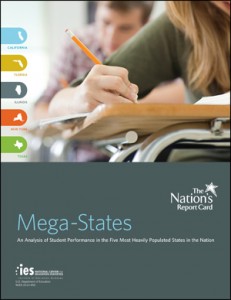Editor's note: This post was written by Bert Gall, senior attorney with the Institute for Justice and the institute's lead attorney in the Indiana voucher case.
Yesterday, in Meredith v. Pence, the Indiana Supreme Court held that Indiana’s Choice Scholarship Program (CSP) does not violate the state constitution. By unanimously rejecting the legal claims brought by national and state teachers unions, the court ensured that the school voucher program - which provides publicly funded scholarships that low-and middle-income families can use to send their children to private schools or out-of-district public schools - will survive. Indeed, because about 62 percent of Indiana families are eligible to receive the school vouchers, the legal path is now clear for the CPS to become the largest school-choice program in the country.
That’s great news, not just for Indiana parents, but for all parents in every state who are clamoring for school choice so they can provide their children with a quality education. This is because the unions’ legal claims focused on two types of constitutional provisions that are common in most other state constitutions: 1) provisions requiring that states provide a “general and uniform” system of public education; and 2) provisions forbidding state support of religion.
The unions principally rely upon these two types of provisions when they challenge school choice programs. But unfortunately for them, state courts - particularly those that have yet to apply their provisions to school-choice programs - will now look to the Indiana Supreme Court’s decision for guidance when evaluating claims brought under those provisions. Fortunately for advocates of school choice, that guidance is both persuasive and intellectually sound.
First, the court showed that the duty to provide a “general and uniform” system of public schools is not violated when a state provides educational options above and beyond that system. Significantly, the court refused to adopt the Florida Supreme Court’s terribly flawed decision in Bush v. Holmes, a 2006 case which held that Florida’s analogous provision only allows educational funds to be spent on public schools. Just as they did in Indiana, teachers unions are attempting to export the holding of that decision (in which the Florida Supreme Court ignored both the plain language of its provision and misapplied basic canons of statutory construction) to other states with similar provisions. That task just got a lot harder: Holmes was already considered a flawed decision and a legal outlier, but today’s decision further marginalizes it. (more…)
State of the State. Gov. Rick Scott gives props to teachers and pushes for a boost in ed funding. Coverage from Gradebook, Tampa Bay Times, Orlando Sentinel, SchoolZone, Palm Beach Post, Gainesville Sun, Tallahassee Democrat, The Florida Current, StateImpact Florida. A special spotlight for a Temple Terrace teacher, reports the Times/Herald Capital Bureau.
 More on the legislative session. An education issue overview from StateImpact Florida. A roundup of school choice bills from redefinED.
More on the legislative session. An education issue overview from StateImpact Florida. A roundup of school choice bills from redefinED.
Virtual schools. Pasco drops a challenge to a proposed Florida Virtual Academy charter. Tampa Bay Times.
McKay vouchers. Another reason Texas should adopt them. EdFly Blog.
AP tests. Should Florida students get paid for passing them? Gradebook.
School spending. The Brevard school board revises its $30 million list of cuts in response to community input, reports Florida Today. The Flagler school board moves towards putting a tax referendum on the ballot for next spring, reports the Daytona Beach News Journal. An audit committee in Manatee sees progress in how the district is responding to budget errors that led to a $3.4 million deficit, reports the Bradenton Herald. More from the Sarasota Herald Tribune. (more…)
Charter schools. Florida's first classical preparatory school, slated for opening this fall in Pasco, asks for a one-year delay so it can find better digs, reports Gradebook. A judge again rules in favor of allowing a Sarasota principal to temporarily stay as head of an Imagine charter school that wants to split from the parent company, reports the Sarasota Herald Tribune.
 Magnet schools. Magnet Schools of America names Roosevelt Middle in West Palm a National Magnet School of Distinction. Extra Credit.
Magnet schools. Magnet Schools of America names Roosevelt Middle in West Palm a National Magnet School of Distinction. Extra Credit.
"Progressive" agenda. Self-styled progressive groups put forward a legislative agenda that includes "rejecting efforts to revive the so-called “parent trigger” bill and curtailing the use of private school vouchers, both of which slash public education funding while privatizing public education for corporate gain." Central Florida Political Pulse.
School recognition money. Gov. Rick Scott wants to increase the per-student amount from $93 to $125, notes Extra Credit. In Palm Beach, he hands out $14 million in checks to schools, reports the Palm Beach Post.
Sequestration. Potential effects on Head Start, reports StateImpact Florida. More from Naples Daily News.
Teacher evaluations. More than 100 people show up - including a number of upset teachers - to a Department of Education hearing about the new evals in Orange County, reports the Orlando Sentinel. A different take from the EdFly Blog. (more…)
 For the second time this week, a credible, independent analysis shows Florida students leading the pack in progress.
For the second time this week, a credible, independent analysis shows Florida students leading the pack in progress.
Between 1992 and 2011, Florida students made bigger gains than students in four other “mega states” in fourth- and eighth-grade reading and fourth-grade math, according to a report released Thursday by an arm of the U.S. Department of Education. In each case, they moved from below the national average to meeting or exceeding it. Low-income and minority students in particular showed traction.
“There is something real going on there,” said Jack Buckley, commissioner of the National Center for Education Statistics, according to Education Week.
The center’s comparison followed Wednesday’s College Board report that showed Florida continues to climb the charts on Advanced Placement exams. The Sunshine State now ranks fourth in the percentage of high school graduates passing AP exams. Over the past decade, it ranks second in progress.
Broken-record alert No. 1: Florida’s trend lines shouldn’t be a surprise, given reports like this, this, this, this and this in the past year alone. Yet there remains a lingering perception, cultivated by critics, that Florida’s public schools are sub par and stagnant.
For Thursday’s report, the center for the first time compared scores from Florida, California, Texas, New York and Illinois – the states with the biggest student populations and arguably the biggest challenges. It used results from the National Assessment of Educational Progress, a battery of tests better known as “The Nation’s Report Card” and considered the gold standard among standardized assessments.
In eighth-grade math, Florida students made gains but remain below the national average. Elsewhere in the report, they were singled out often. (more…)
I am grateful to Rebecca Sibilia and Sean Gill for their thoughtful response to my blog post encouraging Michelle Rhee to replace her failing schools model of school choice with an approach based on equal opportunity.
Rebecca and Sean defended StudentsFirst’s support of the failing schools model on pragmatic grounds. They wrote: “When state resources are limited or the existing supply of desirable private schools is limited, it also makes sense to prioritize vouchers or scholarships for those low-income children attending a low-performing school or living in low-performing school districts.”
Every community suffers from an insufficient supply of effective schools for low-income students. But in Florida we’ve learned that increasing demand - not limiting demand - is the best way to increase supply.
Access to Florida’s tax credit scholarship program for low-income students, which I help administer, is limited by a state-imposed cap. But our demand is not limited, so it often exceeds supply. This excess demand has not had a negative effect on students or the program. Instead, it has generated political pressure on the state Legislature to allow our cap to rise to meet this additional demand.
In 2010, as a result of excessive demand, the Florida Legislature voted to allow our program to grow 25 percent every year the demand hits or exceeds 90 percent of supply. The result has been extraordinary growth of supply and demand. While we have been awarding scholarships since 2002, 34 percent of our growth has occurred in just the last two years. This school year we added 10,000 more students to the program and had more than 12,000 students add their names to our waiting list after we hit our cap.
We’ve also been adding about 100 new private schools per year to the program, and some have started to expand their physical capacity to serve more students. Had we adopted the StudentsFirst approach of limiting demand when faced with limited supply, this extraordinary growth would not have occurred.
Today, more than 43 percent of Florida’s preK-12 students attend a school other than their assigned district school. Charter schools, magnet schools, virtual schools, career academies, dual enrollment and homeschooling are all growing dramatically. Private schools are already struggling to maintain their market share given all these choices. If we were to limit our scholarships to low-income students in state-designated failing schools, then many private schools serving low-income students might be forced to close - to everyone’s detriment. (more…)
More Rubio vouchers. U.S. Sen. Marco Rubio needs a Florida-style coalition - meaning some Democratic lawmakers who see the value in expanded school choice - to get his plan for federal tax credit scholarships off the ground, writes Adam Emerson at the Choice Words blog. Education Week logs it in.
 More tutoring oversight. In light of abuses, the state-mandated program - which allows low-income parents to choose and access private tutors - should be scrapped, editorializes the Tampa Bay Times. The Miami Herald editorial board offers a more measured response, calling for better oversight and more regulatory accountability but acknowledging the predicament of low-income parents.
More tutoring oversight. In light of abuses, the state-mandated program - which allows low-income parents to choose and access private tutors - should be scrapped, editorializes the Tampa Bay Times. The Miami Herald editorial board offers a more measured response, calling for better oversight and more regulatory accountability but acknowledging the predicament of low-income parents.
More parent trigger. Florida Times Union. FCIR.
Wall of shame. At Jefferson High in Tampa, teachers keep tabs on embarrassing questions from students with a "Wall of Shame" in the teachers' lounge. Tampa Bay Times.
School safety. A 14-year-old is arrested for allegedly molesting an 8-year-old at a school for special needs students in Clearwater. Tampa Bay Times.
Charter schools. Teachers need more options, too, says Senate President Don Gaetz, reports StateImpact Florida. A growing number of charters in Palm Beach County increasingly pits independent charters against charter networks, reports the Palm Beach Post.
Magnet schools. Palm Beach district officials hope they can land a federal grant to create and bolster magnets at three underutilized schools. Palm Beach Post.
Dual enrollment. Growing numbers of students are taking the classes, raising concerns about state college costs and high school curriculum. Tampa Bay Times. (more…)
Backers of a bill that would give Florida students with disabilities quicker access to state-funded vouchers for private schools say they need another year to work on the proposal.
Senate Bill 172, filed by Sen. Miguel Diaz de la Portilla, R-Miami, was withdrawn from consideration last week.
The bill called for removing the rule that students spend a year in a Florida public school immediately prior to becoming eligible for the McKay Scholarship. Advocates support that provision whole-heartedly, but some feared potential complications between parents and school districts.
“We want to go back and rework it a little,’’ said Steve Hicks, president of the Coalition of McKay Scholarship Schools, which presents private schools that accept the vouchers.
The plan is to gather stakeholders and meet during the year before presenting a new bill for the next legislative session, he said.
Sen. Diaz de la Portilla could not be reached for comment.
 The Orlando Sentinel recently published a blog entry about a new website that opposes students using publicly-funded vouchers to attend private schools that teach creationism. The site asserts, “Teaching creationism with public money is unconstitutional. It violates the First Amendment of the U.S. Constitution which lays out a clear separation of church and state.”
The Orlando Sentinel recently published a blog entry about a new website that opposes students using publicly-funded vouchers to attend private schools that teach creationism. The site asserts, “Teaching creationism with public money is unconstitutional. It violates the First Amendment of the U.S. Constitution which lays out a clear separation of church and state.”
I’m fine with citizens opposing the teaching of creationism. I would not send my child to a school that taught creationism in lieu of evolution, but the assertion that it’s unconstitutional is false.
In the 1925 Pierce v. Society of Sisters decision, the U.S. Supreme Court ruled parents are responsible for determining how and what their children are taught. And in the 2002 Zelman v. Simmons-Harris decision, the court ruled parents may use public money to pay for tuition at faith-based schools provided their choice is genuinely independent, and the funds go first to the parents and then to the school.
Florida’s school voucher programs all adhere to the Zelman requirement that funds go first to the parent and then the school, which is why using publicly-funded vouchers to attend faith-based schools is an exercise of the First Amendment’s freedom of religion clause, and not a violation of the Establishment Clause. (By the way, the term “separation of church and state” does not appear in the U.S. Constitution. That phrase was used by President Thomas Jefferson in a January 1, 1802 letter he wrote to the Danbury Baptist Association of Connecticut, reassuring them that he opposed the government interfering with their religious practices.)
The Sentinel wrote that some state officials think tax credit scholarships are more constitutional than vouchers because tax credit funds never touch the state treasury, but, again, the key to the Zelman decision is the path the funds travel to arrive at a faith-based school. Once public funds are given to the parents, they become less public and more private, which is why their expenditure is an exercise of religious freedom and not government-supported religion. (more…)
Private schools and FCAT testing. So far, two schools that accept tax credit scholarships have signed up, reports SchoolZone. The deadline is March 1.
 Charter schools. A bill to be considered by the House Education Committee this week would require school districts to turn over empty buildings to charter schools for free and pay to maintain them. SchoolZone.
Charter schools. A bill to be considered by the House Education Committee this week would require school districts to turn over empty buildings to charter schools for free and pay to maintain them. SchoolZone.
Teacher conduct. Two more girls are suing the Palm Beach County School Board, claiming they were sexually assaulted by a former middle school band teacher; the board has already agreed to pay two other girls $150,000 each to settle. Palm Beach Post.
Teacher evaluations. Tampa Bay Times raises questions about the new system with an analysis of schoolwide VAM scores in Pinellas.
Rick Scott. To get re-elected, he's "throwing money at schools." Palm Beach Post.
School grades. Focus is what led to improvements at two Polk schools. Lakeland Ledger.
School poverty. Percentage of students eligible for free- and reduced-price lunch is rising in Volusia and Flagler. Daytona Beach News Journal.
School spending. The Palm Beach County district wants the Legislature to restore districts' previous taxing authority for capital needs, so it can avoid a capital budget deficit that could top $50 million. Palm Beach Post.
School security. More than 50 Pinellas teachers sign up for free gun training. Tampa Bay Times.
Hidden faces. Non-instructional workers in Palm Beach County rally for fair treatment. South Florida Sun Sentinel.
ALEC's report card. StateImpact Florida.
Editor’s note: Every month, Step Up For Students - which co-hosts this blog - profiles a family that benefits from Florida’s tax credit scholarship program. Here's the latest:
Vivian Calhoun is raising a princess. She didn’t plan on it, but it’s working out just fine.
She gets to give and receive lots of hugs and kisses from her 6-year-old great-granddaughter, Anastasia, who came into the world to parents who couldn’t take care of her. But with Vivian’s help, the young girl is living much more of a fairy tale than was ever expected.
“She thinks she’s a princess,” Vivian said with a chuckle. “If you ask, she’ll tell you she’s royalty.”
Anastasia’s mother wasn’t able to care for her and her father has never really been a part of her life, Vivian said. And Anastasia’s grandmother, Vivian’s daughter, had problems of her own, so the great-grandmother did the only thing she could: Become Anastasia’s guardian and only true parental figure.
“It was an easy decision,” Vivian said.
Still, Vivian, 68 and a widow after 35 years of marriage, lives on her disability checks. She had to retire from working as a manager for staffing company because back surgery left her with permanent nerve damage. She gets less than $200 monthly from the state to help with Anastasia and does all she can to make the money stretch, she said. But seeing the effects of drugs and violence up close with loved ones, she wanted to ensure that Anastasia had a safe learning environment, and received individualized attention in smaller classrooms in a place that could instill similar values as Vivian was trying to teach at home. She also wanted Anastasia to feel like people at school were an extension of her family.
Vivian yearned to send Anastasia to a local private school that matched these needs, but she didn’t have the financial means until a neighbor told her about Step Up For Students, Florida’s Tax Credit Scholarship Program that helps send low-income Florida students to private K-12 schools or out-of-district public schools.
During the 2011-12 school year, Anastasia started kindergarten at Christ’s Church Academy, formerly called Mandarin Christian School, in Jacksonville and is now 6 and in the first grade.
“Everybody is just so wonderful. It’s been smooth sailing,” Vivian said of the school and Anastasia’s adjustment to school life. “She’s so happy and doing so well.”
Anastasia loves CCA so much, her great grandmother said, that she doesn’t like school vacations and early dismissal days.
“She doesn’t want to leave the school, and that tells me a lot about the school,” Vivian said. (more…)